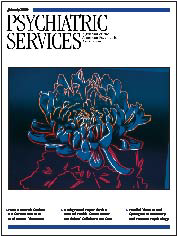That racism exists today is indisputable, as evidenced by the resegregation of schools and neighborhoods, the extraordinary numbers and proportions of incarcerated people of color, the higher rates of disabling illness and lower life expectancies among people of color, and the continued presence of racial stereotypes uncovered by social psychologists conducting research projects across the country—to mention only a few indicators. And yet, unlike in the 1950s and 60s, there is no major social movement comparable to the civil rights movement, virtually no government initiatives to address racism, and little public discourse in mainstream media about race and racism. Paradoxes abound: George Bush, Sr., appointed Clarence Thomas to the Supreme Court, and George Bush, Jr., has appointed the first African-American male Secretary of State, the first African-American female Secretary of State, and the first Latino Attorney General; in the latter two cases, the nominations were opposed by most major civil rights organizations because of the reactionary track records of the nominees and perceptions of cynical motives harbored by the nominators.
Affirmative action is under attack and eroding, even as racial disparities in education, occupation, and income increase. Aaron David Gresson, in his contribution to Racism: Essential Readings, wonders how in the decades following the civil rights movement and Great Society, racism became "reverse racism," with whites as victims and those who have suffered past and present racial oppression positioned as having special privileges: "the oppressor is now the oppressed, and the victim is now the villain." These questions illustrate how much the landscape of racism and race relations has changed over the past 40 years. This book includes 38 essays, spanning a 90-year period from 1905 to 1995, pondering how best to conceptualize racism and the many complex questions that racism raises. What is racism? Is it a function of class struggle and economic exploitation or an independent social dynamic? If race is not a viable biological concept, as most of the contributors find—and most social scientists today accept—why is racism so intractable? Should the focus of studies of racism be primarily on its victims or its perpetrators? Why is it so difficult for white people to see and acknowledge racism? How is racism manifested today, what is racist, and who are racists? These are but a few of the questions considered in the essays in this book.
Some of the more well-known writers included in this anthology are W. E. B. Du Bois, Gunnar Myrdal, Oliver Cox, Ashley Montagu, Stokely Carmichael, Margaret Mead, James Baldwin, and William Julius Wilson. Adorno's classic chapter on the "authoritarian personality" is eerily prescient about political divisions that were evident in the most recent Presidential elections. More recent contributors include Beverly Daniel Tatum, writing about discussing racism and the role of racial identity; and Joyce King, describing "dysconscious racism"; there is also an excerpt from Theodore Allen's ponderous but enlightening book, The Invention of the White Race. A fascinating piece by Raphael Ezekiel is included, called "The Racist Mind: Portraits of American Neo-Nazis and Klansman." Ezekiel, who is Jewish, hung out with rabid racists and discussed with them why they hated blacks and Jews, without disguising his identity.
Some chapters are dense, dated, polemical, insular, and virtually unreadable, particularly those written by Marxists or neo-Marxists, often attacking those who do not think like them and holding the targets of their ire accountable for what today seem like quite obscure distinctions and differences. There are also some surprising omissions, such as Allport as well as Omi and Winant, whose book Racial Formation in the United States is one of the most cited by those working in this field. There is surprisingly little from many of today's "critical race theorists," who have been prolific contributors to the academic discourse on racism over the past 20 years. There is also not enough about the legal construction of race and racism. The commentary by the editors before each contribution is brief but concisely summarizes the key ideas in the essays.
Overall, Racism: Essential Reading is mostly a book for people who are particularly interested in racism and who want to trace the intellectual history of those who study it, particularly sociologists and socialists. There are many nuggets but also some arcane and mind-numbing pieces. It is a useful reference book but not a gripping volume to read in one sitting. It can also serve as a useful introduction to some of the most interesting thinkers in the field, which may spur some readers to read the original books. Racism is very much a presence in American life today, and any book that presents a serious and complex discussion of some of its core issues is welcome.

